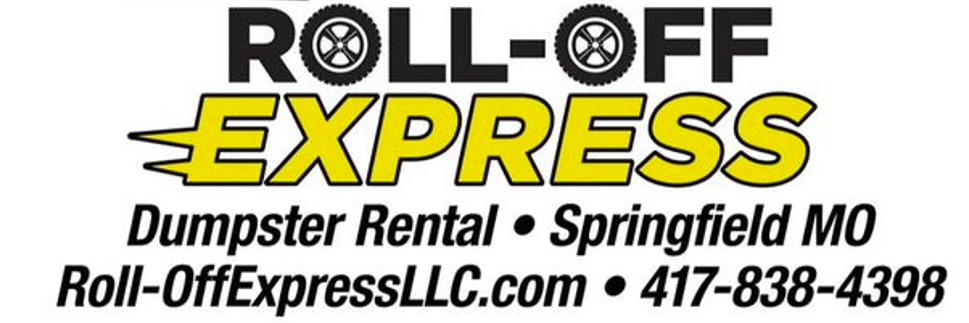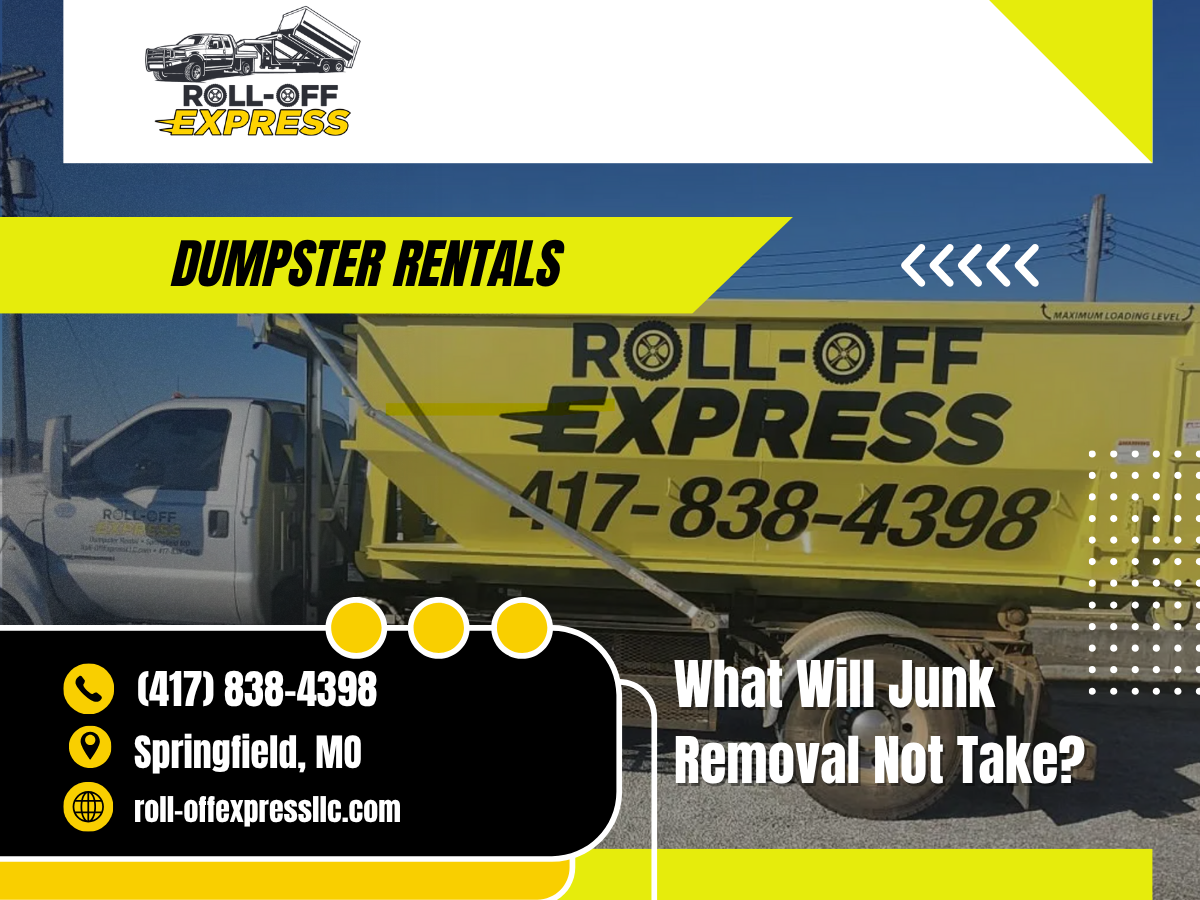When you’re looking to clear out clutter, it’s essential to know what junk removal services won’t take. Many common items, like hazardous materials and old electronics, can pose risks to health and the environment. You might be surprised by what else is often left behind. Curious about the specific categories that these services steer clear of? Let’s explore what you need to take into account before scheduling that pickup.
Hazardous Materials
When it comes to junk removal, there are certain items you definitely can’t include in dumpster rentals, and hazardous materials top the list. These materials pose significant risks to both people and the environment, so you’ll need to handle them with care. Common hazardous items include solvents, paint, batteries, pesticides, and any type of asbestos-containing materials.
If you’re unsure about specific items, it’s best to consult with your dumpster rentals provider or junk removal service. They often have guidelines to help you identify what’s safe to dispose of and what isn’t.
You might find local hazardous waste collection events or facilities that accept these materials for proper disposal. Remember, attempting to throw away hazardous items can lead to fines and health risks.
Always prioritize safety and legality when dealing with waste, and verify you’re following local regulations to keep yourself and your community safe.
Electronics
How do you dispose of old electronics safely?
It’s essential to handle this responsibly because electronic waste can contain harmful materials. Most junk removal services won’t take items like computers, TVs, or old phones due to strict regulations.
Instead, consider recycling options. Many manufacturers offer take-back programs, allowing you to return old devices for proper disposal. Local recycling centers often accept electronics, too.
Before you recycle, make sure to wipe your devices clean of personal data. You don’t want sensitive information falling into the wrong hands.
Also, check for any local e-waste collection events in your area; they’re usually free and a great way to responsibly dispose of unwanted electronics.
Appliances
While you might think junk removal services can handle all your old appliances, many won’t take large items like refrigerators, washers, or dryers due to safety and environmental regulations.
These appliances often contain hazardous materials, such as refrigerants or heavy metals, which require special handling.
If you’re looking to dispose of an appliance, check if your local service offers appliance recycling or disposal options. Some companies partner with recycling facilities to guarantee proper processing.
You may also want to take into account donating working appliances to charities or selling them online.
For smaller appliances like microwaves or toasters, some junk removal services might accept them, but it’s always best to confirm first.
You don’t want to be caught off guard when the removal team arrives. Before scheduling a pickup, make sure you understand which appliances your chosen service can and can’t take.
Mattresses
Just like appliances, mattresses often pose challenges for junk removal services. Many companies don’t accept them due to the difficulties involved in proper disposal.
Mattresses can harbor allergens and pests, making them a health concern. Additionally, recycling options may be limited depending on your location.
You might think about tossing your old mattress on the curb, but it’s often illegal and could lead to fines. Instead of relying on junk removal, consider donating a mattress in good condition. Local charities or shelters might appreciate it, and you’ll be helping someone in need.
If your mattress is worn out, look for recycling programs that specialize in them. Some retailers even have take-back programs when you purchase a new mattress.
Always check local regulations and availability before attempting to dispose of your mattress. Remember, it’s crucial to guarantee responsible and legal disposal.
Tires
Tires can be a tricky item for junk removal services. Many companies won’t take them due to environmental regulations and disposal costs.
If you’re wondering what to do with your old tires, here are some important points to reflect on:
- Recycling Options: Many local tire shops offer recycling services. Check with them first.
- Fees: Some junk removal services might charge extra fees for tire disposal, so ask upfront.
- Local Laws: Some areas have specific regulations about tire disposal, so be sure to research your local laws.
- Hazardous Waste: Tires can be viewed as hazardous waste, which means they require special handling and disposal methods.
Instead of throwing them away, contemplate these alternatives.
Fireworks
When it comes to junk removal, you might be surprised to learn that fireworks are typically off-limits. Many junk removal services won’t accept them due to safety and legal concerns. Fireworks contain explosive materials that can pose serious risks during transport and disposal.
If you’ve got leftover fireworks from a celebration, it’s vital to handle them correctly. Most areas have strict regulations regarding the disposal of fireworks, often requiring you to take them to designated facilities. Simply tossing them in the trash isn’t safe or legal.
Instead of trying to dispose of them yourself, consider contacting local authorities or fire departments for guidance. They can provide information on safe disposal options in your area.
Medical Waste
Fireworks aren’t the only items that junk removal services typically refuse to take. Medical waste is another crucial category they won’t handle.
It’s essential to understand why this type of waste requires special attention. You may encounter various forms of medical waste, including:
- Sharps: Needles, blades, and other sharp objects can pose serious health risks.
- Biohazardous Materials: Items contaminated with bodily fluids must be disposed of safely.
- Pharmaceuticals: Expired or unused medications need proper disposal to prevent environmental harm.
- Infectious Waste: Anything that could transmit infections, like soiled bandages, should be treated with care.
To promote safety, always seek professional services that specialize in medical waste disposal.
This way, you minimize risks to yourself and the community while adhering to legal regulations.
Don’t take shortcuts; prioritize proper disposal methods for medical waste.
Construction Debris
Construction debris can be a major headache for homeowners and contractors alike. When you’re renovating or building, you’ll likely end up with materials like concrete, bricks, drywall, and lumber.
Unfortunately, many junk removal services won’t accept these items. They typically require specialized disposal due to the weight, size, and environmental regulations surrounding construction waste.
If you’ve got large pieces of wood or heavy concrete blocks, you’ll need to find a dedicated construction debris removal service or a landfill that accepts such materials. Local regulations can vary, so it’s vital to check what’s allowed in your area.
Don’t forget to separate recyclable materials like metal and wood, as some services may take those. Properly handling construction debris guarantees a cleaner project site and compliance with local laws.
Chemicals and Solvents
While you might think junk removal services can handle just about anything, chemicals and solvents are often off-limits. These substances pose serious risks to both the environment and the health of workers.
When you’re considering what to dispose of, remember that proper disposal is essential. Here are four types of chemicals and solvents that junk removal typically won’t take:
- Household Cleaners – Many contain harmful ingredients that require special handling.
- Paints and Lacquers – These can be flammable and toxic, making them a hazard.
- Pesticides and Herbicides – These chemicals can harm wildlife and contaminate water supplies if not disposed of correctly.
- Automotive Fluids – Oil, antifreeze, and transmission fluid are hazardous waste that need proper recycling.
Always check with local regulations or specialized hazardous waste disposal services to guarantee safe removal.

